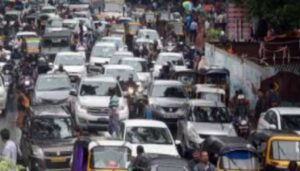Education body fortifies autonomy bid for colleges

Cites figures stating the decreased number of students availing higher education; says govt should shed hold on pvt facilities
Maharashtra has seen a considerable inflow of deemed, autonomous and private universities, given its varied student population. Looking at this phenomenon, Education Promotion Society for India (EPSI), a national body of education sector, has demanded that the government should shed it powers on private education and readily give autonomy.
Around 200 representatives from different colleges came together for a conference ‘Indian Higher Education — Challenges of Autonomy and Accountability’ which was organised in Pune on Sunday.
G Vishwanathan, president of EPSI, said, “While there are 14 crore students in the age group 18-23 eligible to pursue higher education, only 3.6 crore actually have availed the opportunities. There is shortage of seats in colleges for various courses. They can be provided opportunities by private and autonomous universities.”
He believes that the Centre and the state have too many regulations to govern these colleges. “There should be no regulatory bodies to dole out no-objection certificates, affiliations among others, so that private and deemed universities can work on self–accountability,” he said.
The discontinuation of the “affiliation system” was one of the larger topics discussed at the conference. They also positively talked about the autonomous statuses to colleges.
Mangesh Karad, executive director of MIT Group of Institutions, said, “If autonomy is given to institutes, then it becomes easier for them to launch newer courses.”
Anil Sahasrabuddhe, chairman of All India Council for technical Education (AICTE), while encouraging the autonomy bid, emphasised on the accountability factor. “Few colleges and deemed universities are not following the rules and regulations, giving rise to malpractices. The government needs to bring in stronger regulation,” he said.
However, autonomy often corresponds to high fees — a phenomenon, which Vishwanathan said, can be tackled. He said, “The government should bring down the rate of interest for education loan. The below poverty line students should be charged two per cent interest and middle-class students should be charged five per cent.”








